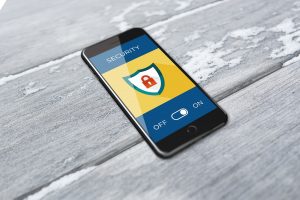 As our work and lives become more mobile and travel with us, the devices that we depend on which we take are becoming prime targets for hackers and thieves. With more and more of our lives, personal data, and work-loads becoming available from anywhere through our mobile devices, it has become imperative to ensure your mobile devices are secure.
As our work and lives become more mobile and travel with us, the devices that we depend on which we take are becoming prime targets for hackers and thieves. With more and more of our lives, personal data, and work-loads becoming available from anywhere through our mobile devices, it has become imperative to ensure your mobile devices are secure.
Losing your device, or having it stolen could lead to potential data loss, or stollen identification. Which is why you need to take action to ensure that your devices are password protected, can be remotely locked or wiped, and that you can locate your device as needed.
Some Further Steps to Protect Your Mobile Devices
Securing your mobile devices is crucial to protect your personal data and privacy. Here are some essential steps you can take to enhance the security of your mobile devices:
- Keep your phone software up to date: Regularly update your phone's operating system and applications. Software updates often include security patches that address vulnerabilities and protect against potential threats.
- Use a strong lock screen: Set a strong passcode, pattern, or fingerprint/face recognition lock screen to prevent unauthorized access to your device. Avoid using easily guessable or common passwords.
- Enable two-factor authentication (2FA): Enable 2FA for your accounts whenever possible. This adds an extra layer of security by requiring a second form of verification, such as a code sent to your phone, in addition to your password.
- Be cautious of app downloads: Only download applications from trusted sources, such as official app stores like Google Play Store or Apple App Store. Check app ratings, reviews, and permissions before installing them.
- Review app permissions: Regularly review the permissions granted to apps on your phone. Ensure that apps have appropriate access to your data and features. Deny permissions that seem unnecessary or excessive.
- Install reputable security software: Consider installing a reputable mobile security app that offers features like antivirus protection, malware scanning, and anti-theft features. Research and choose one from a trusted provider.
- Be cautious of public Wi-Fi networks: Avoid connecting to unsecured public Wi-Fi networks as they can be vulnerable to data interception. If you must use public Wi-Fi, consider using a virtual private network (VPN) to encrypt your connection.
- Use encryption and secure messaging apps: Enable encryption settings on your device to secure your data. Additionally, use secure messaging apps that offer end-to-end encryption, like Signal or WhatsApp, for sensitive communications.
- Regularly back up your data: Create regular backups of your important data, such as contacts, photos, and documents. Backing up your data ensures that you can restore it in case of loss, theft, or damage to your device.
- Be cautious of phishing attempts: Be vigilant about phishing attempts through email, text messages, or other forms of communication. Avoid clicking on suspicious links or providing personal information unless you are certain of the source's authenticity.
- Enable remote tracking and wiping: Enable the "Find My Device" feature on Android or "Find My iPhone" on iOS. These services allow you to track your phone's location remotely and, if necessary, erase its data in case of loss or theft.
- Secure your mobile browser: Adjust your mobile browser's privacy and security settings. Consider using browser extensions or features that block pop-ups, prevent tracking, and warn about potentially malicious websites.
Remember, mobile phone security is an ongoing process, and it's important to stay informed about the latest threats and security best practices.



